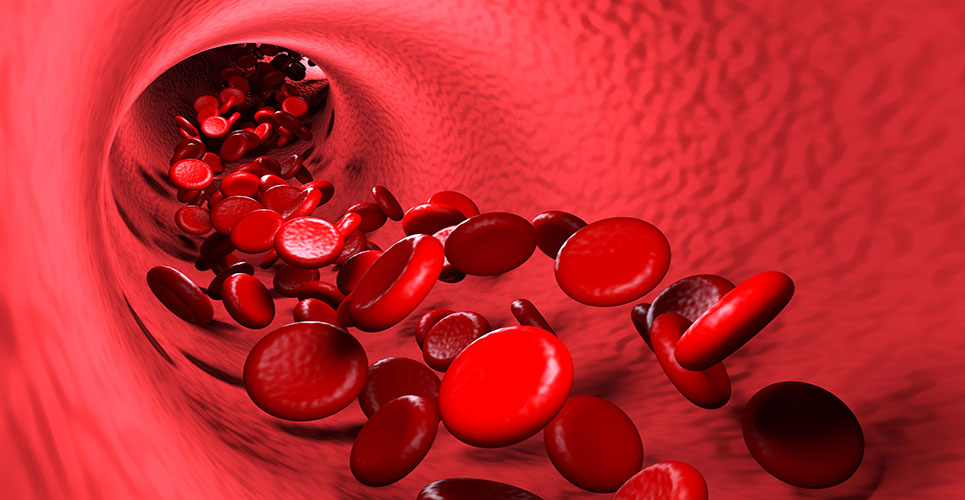teaser
- Myelofibrosis is a life-threatening blood cancer characterised by bone marrow failure, enlarged spleen and debilitating symptoms, including fatigue and pain
- Phase III trial (COMFORT-II) demonstrated INC424 significantly reduced enlarged spleen size, a major characteristic of the disease, when compared to best available therapy at 48 weeks
- A separate Phase III trial (COMFORT-I) of INC424 showed significant spleen size reduction and symptom improvement when compared to placebo at 24 weeks
- Both studies met their primary endpoint and provide the basis for worldwide filings to begin in Q2 2011 in myelofibrosis, for which there are limited treatment options
Novartis announced today results from two pivotal Phase III studies demonstrating the effects of investigational Janus kinase (JAK) inhibitor INC424 (ruxolitinib) in treating patients with myelofibrosis, a blood cancer with limited treatment options. These data are being presented at the 47th American Society of Clinical Oncology (ASCO) annual meeting in Chicago. Novartis and Incyte have a worldwide collaboration and license agreement for INC424.
The Phase III trial COMFORT-II (COntrolled MyeloFibrosis Study with ORal JAK Inhibitor Therapy) demonstrated that INC424 produced a volumetric spleen size reduction of 35% or greater in 28.5% of myelofibrosis patients compared to 0% of patients in the best available therapy arm at 48 weeks (p<0.0001). The trial also met a key secondary endpoint with 31.9% of INC424 patients demonstrating a 35% or greater volumetric spleen size reduction by week 24 compared to 0% in best available therapy patients (p<0.0001). Further, data showed a marked improvement in overall quality of life measures, functioning and symptoms relative to the best available therapy arm.
COMFORT-I, conducted by Incyte, is a Phase III clinical trial comparing INC424 to placebo at 24 weeks. Results showed that 41.9% of myelofibrosis patients who received INC424 achieved at least a 35% reduction in spleen volume at 24 weeks from baseline compared to 0.7% of patients in the placebo arm (p<0.0001). COMFORT-I also met key secondary endpoints with statistical significance, including improvement of debilitating symptoms and demonstrating clinically relevant durations of spleen size reduction.
“These data show that INC424 may offer a significant advance in treating patients impacted by myelofibrosis, a serious malignant disease with limited available treatment options,” said Alessandro Vannucchi, MD, Professor, Department of Hematology, University of Florence, Hospital Careggi, Italy, investigator for the COMFORT-II study. “By targeting the JAK pathway, which is autonomously activated in patients with myelofibrosis even in the absence of the most common JAK mutation, INC424 delivered rapid and durable spleen size reduction in these patients.”
Myelofibrosis is an uncommon blood cancer characterised by bone marrow failure, enlarged spleen (splenomegaly), a variety of symptoms that can be debilitating and serious complications. It is associated with significantly reduced quality of life and shortened survival. A high unmet medical need exists for the treatment of myelofibrosis, caused by abnormal signalling in the JAK pathway, which regulates blood cell production. Abnormal signalling initiates faulty blood cell production resulting in an enlarged spleen and other severe complications.
“The COMFORT clinical program is the largest ever conducted in myelofibrosis patients and findings support INC424 as a significant advance for patients affected by this life-threatening blood cancer,” said Hervé Hoppenot, President, Novartis Oncology. “These studies further demonstrate Novartis’ goal of bringing innovative, pathway-based compounds to patients with unmet medical needs.”
Results of the COMFORT clinical trials will also be presented at the 16th Congress of the European Hematology Association (EHA) from June 9–12 in London. Both studies met their primary endpoint and form the basis of worldwide regulatory filings planned to begin in the second quarter of 2011 by Novartis and Incyte.

